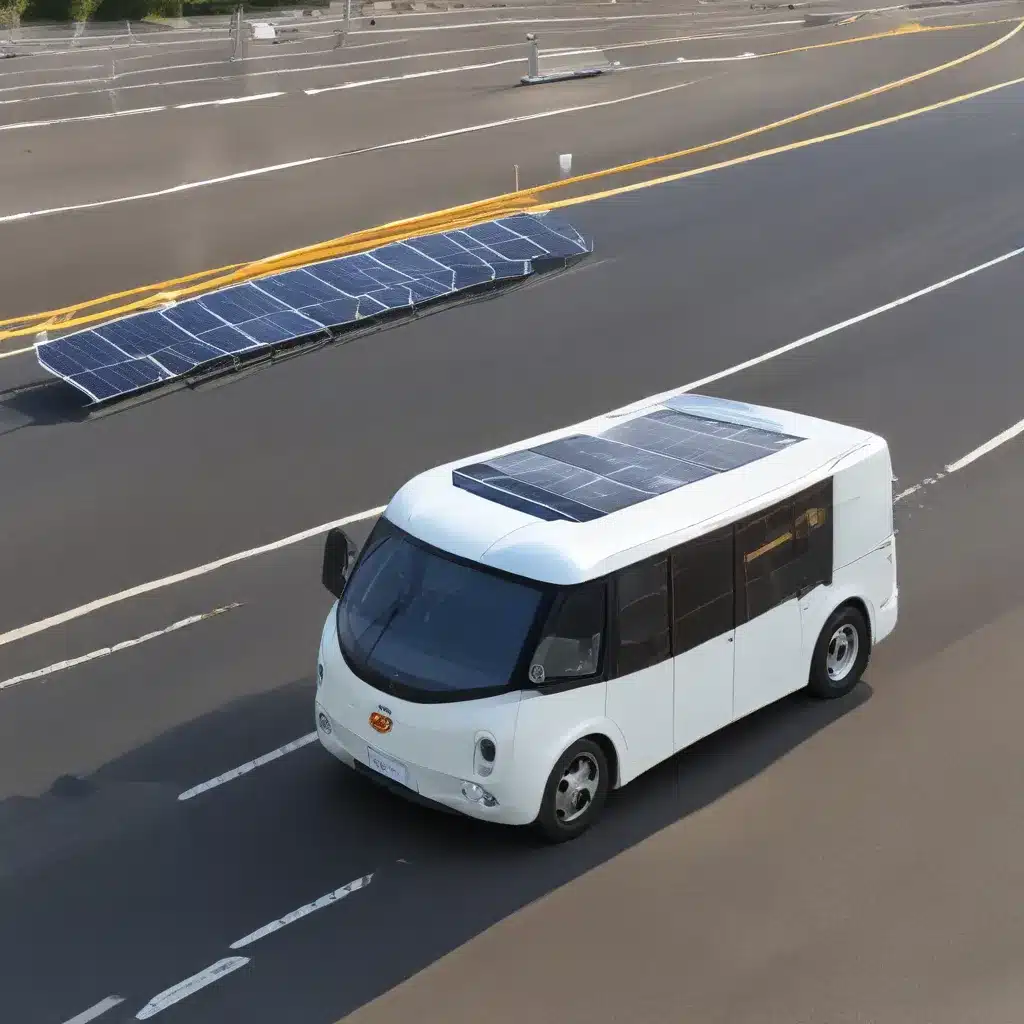
The Future of Sustainable Mobility is Here
I’ll never forget the day I took my first ride in a solar-powered vehicle. It was like stepping into the future – the smooth, silent acceleration, the lack of tailpipe emissions, and the satisfaction of knowing I was contributing to a cleaner, greener planet. From that moment on, I was hooked on the promise of solar vehicles and their potential to revolutionize the way we think about transportation.
As someone who has long been passionate about environmental sustainability, I’ve closely followed the advancements in solar energy technology and its application to the transportation sector. And let me tell you, the future of solar vehicles is bright – pun intended!
Accelerating Towards a Zero-Emission Future
The state of California has taken a bold step towards embracing this future with the recently approved Advanced Clean Cars II rule. This trailblazing regulation sets the state on a path to rapidly growing the zero-emission car, pickup truck, and SUV market, with the goal of having 100% of new vehicle sales be zero-emission by 2035.
This is a game-changing move that will not only deliver cleaner air and massive reductions in climate-warming pollution, but also provide consumers with more options and certainty when it comes to the long-term emission benefits, quality, and durability of these clean vehicles. And it’s not just California – other states and nations around the world are also setting ambitious targets to phase out the sale of internal combustion engine vehicles in favor of zero-emission alternatives.
The Rise of Solar Vehicles
At the forefront of this transition are solar vehicles – cars, trucks, and even buses that harness the power of the sun to propel themselves forward, emitting zero emissions in the process. These innovative machines are not just a pipedream; they are becoming a reality, with a growing number of manufacturers and startups investing heavily in the development and production of solar-powered transportation solutions.
One of the pioneers in this space is Solar As Systems Inc., a company that has been at the forefront of the solar vehicle revolution. Their sleek, efficient, and eco-friendly vehicles are not only turning heads, but they are also paving the way for a future where clean, sustainable mobility is the norm rather than the exception.
The Benefits of Solar Vehicles
What makes solar vehicles so attractive, you might ask? Well, let me break it down for you:
-
Zero Emissions: By harnessing the power of the sun, solar vehicles produce zero tailpipe emissions, making them a true zero-emission transportation solution. This not only helps to improve air quality, but it also contributes to a significant reduction in greenhouse gas emissions, which is crucial in the fight against climate change.
-
Cost Savings: Driving a solar vehicle can result in substantial cost savings over the long term. Thanks to the lower fuel and maintenance costs, owners of solar vehicles can expect to save thousands of dollars over the lifetime of their vehicles, compared to their gas-guzzling counterparts.
-
Energy Independence: Solar vehicles are not reliant on fossil fuels, which means they are immune to the fluctuations in oil prices and the geopolitical tensions that often disrupt the global energy market. By tapping into the abundant and renewable energy of the sun, solar vehicle owners can enjoy a level of energy independence that is simply not possible with traditional internal combustion engine vehicles.
-
Sustainability: The environmental benefits of solar vehicles go beyond just the emissions they produce. The manufacturing process and materials used in their construction are also designed with sustainability in mind, ensuring that these vehicles have a minimal impact on the planet throughout their entire lifecycle.
Overcoming the Challenges
Of course, the transition to a solar-powered transportation future is not without its challenges. Battery technology, charging infrastructure, and range limitations have all been hurdles that manufacturers and policymakers have had to grapple with. But the progress made in recent years has been nothing short of remarkable.
Amazon’s Climate Pledge, for example, has seen the company commit to achieving net-zero carbon emissions by 2040 – a full decade ahead of the Paris Agreement’s target. And a big part of this effort involves the expansion of zero-emission transportation solutions, including electric delivery vans, cargo e-bikes, and even on-foot deliveries.
Similarly, LA Cleantech Incubator has been at the forefront of initiatives aimed at decarbonizing the transportation sector, working with policymakers, industry leaders, and innovative startups to pilot new technologies and business models that can help drive the transition to a more sustainable mobility future.
The Solar Vehicle Revolution is Here
As I look around at the bustling streets and highways, I can’t help but feel a sense of excitement and optimism about the future of transportation. The rise of solar vehicles is not just a dream, but a reality that is rapidly transforming the way we think about mobility.
Whether it’s the sleek, futuristic designs of the latest solar-powered cars, the silent and efficient operation of solar-powered buses, or the convenience of solar-powered delivery vehicles, one thing is clear: the solar vehicle revolution is here, and it’s only just the beginning.
So, if you’re ready to join me in embracing this sustainable, cost-effective, and environmentally-friendly future, I encourage you to explore the innovative solutions being offered by companies like Solar As Systems Inc. and others. The road ahead may be paved with challenges, but with the power of the sun and the ingenuity of human minds, I’m confident that we can overcome them and create a brighter, cleaner, and more sustainable tomorrow.


